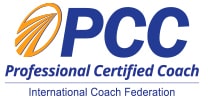We spend the bulk of our time on this planet around other people. We work with them, live with them, and interact with them in our communities.
We are social beings meant to live in relationship with others.
Our relationships with co-workers, family, friends, and others in our communities are an important part of our lives. How we relate to people and the quality of those relationships has an impact on our lives for better or worse.
Studies have found that having positive relationships with others increases a person’s sense of well-being and provides greater life satisfaction.
Our relationships provide us with love, support, and a sense of belonging.
It is also important to realize that ALL relationships (even healthy ones) have ups and downs. Misunderstandings, miscommunication, and conflict are just a few of the many problems that are normal and unavoidable in any relationship.
But what is most important is HOW you handle yourself in those moments of tension that really matters – it can make or break your relationship!
Here are 5 Keys to Help You Become Better at Problem Solving in Your Relationships
1) Know Your Values
Knowing your personal values can help guide your behavior and your decision making. Having a clear sense of what values you hold “near and dear” will help you understand how to be true to yourself while navigating through problems in your relationships.
For example, if you value “contribution” and you work on a team where you do not feel that you are able to contribute in a meaningful way, you are more likely to feel dissatisfied with your job. Disconnected from your team.
This scenario creates a lose-lose situation. Synergy is lost. You are not able to give your best work and your team is not able to be as effective as it could be without full collaboration from you, as well as your team members.
So what can you do about this?
How might you advocate for yourself in a way that will honor your values and benefit you and the team for the best outcome?
If you have a clear sense of your core values you can look for opportunities to be more pro-active. You can offer ideas for ways you want to contribute more on your team.
When your work is in alignment with who you are and the values that you hold you will be more engaged at work. This creates a win-win for you and your team.
You will be more effective in your work.
And your team will be more successful when ALL members feel valued and understood.
2) Initiate Intelligent Conversations
According to Judith Glaser, author of Conversational Intelligence: How Great Leaders Build Trust and Get Extraordinary Results, “unhealthy conversations are at the root of distrust, deceit, betrayal and avoidance – which leads to lower productivity and innovation, and, ultimately lower success.”
On the flip side engaging in healthy conversations allows people to become partners. To co-create a vision of what they want to collectively accomplish with respect and mutual success.
3) Shift from a “ME” to “WE” Approach
One way to initiate healthier conversations is to shift your approach from “ME” to “WE”.
With problem solving, you will fare better if you work together. Tackle the problem holding a team mindset.
Ask questions like:
How can WE approach this situation more effectively?
What do WE need to do differently next time?
Look for ways to share ideas and strategize together. Knowing that each of you are intentionally looking out for the best interests of one another (and not just yourself) will foster positive feelings.
This will promote a sense of cohesion and trust in your relationship.
And let the good vibes roll!
4) Get Better at LISTENING
Sometimes it is helpful to start a difficult conversation by understanding the needs and feelings of the other person first before you share.
Start the conversation by listening rather than talking.
Or simply ask a question that you’d like to hear the other person’s perspective and listen to what they say without jumping in to share your two-cents.
To help you become better at listening write down the word “W.A.I.T.” (Why Am I Talking?) on an index card or post-it note as a reminder to wait before you talk.
And remember if you approach people with a need to be “right” in your conversations, people may feel put off or get defensive which will shut down the chances for an effective problem solving dialogue.
5). Ask “Who Owns this Problem?”
Is your answer: ME, YOU, or US?
Before you jump into problem solving mode, take a step back and look to see WHO the problem belongs to in the first place.
Many people inadvertently complicate their relationships when they assume that a problem belongs to them (when it doesn’t) and they get involved (when they shouldn’t).
For example, if you are a parent you know how irritating it can be when kids are late for school or they forget their homework and ask you to bring it to school (again!). It is so tempting to take over offering them reminders or solutions in an attempt to fix their problems once-and-for-all.
However, this is not helpful for teaching children responsibility and often back-fires with more conflict in the relationship. It also gives children the message that they are not capable of handling their own problems and finding their own solutions.
In the book, Parenting with Love and Logic, by Foster Cline and Jim Fay say “we must find a loving way to allow the consequences to do the teaching for the child, whatever those consequences might be.”
Sometimes the best approach is to step aside and let others be accountable and responsible for their own problems. Knowing your boundaries (and when to step in and when to step out) is a skill you can develop that will help you to become better at solving problems in your relationships.
An essential to the art of problem solving includes knowing your core values, engaging in healthy conversations, and establishing good boundaries.
Enhancing your skills in these key areas will help you become better at navigating problems and strengthening your relationships with others.
© 2018 Jolie Steers. ALL RIGHTS RESERVED.



